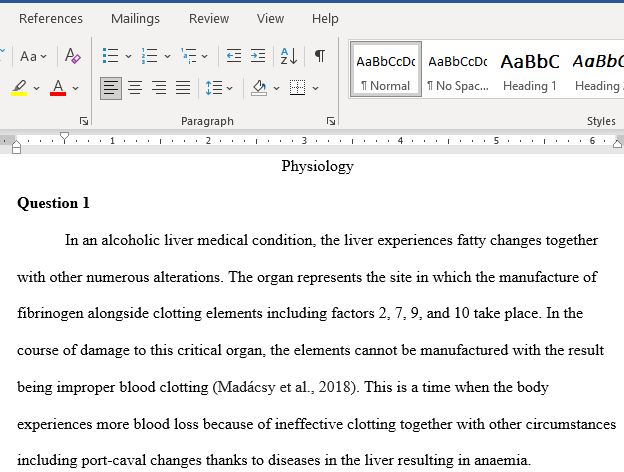Disorders of Hepatobiliary and Exocrine Pancreas Function
Case Study 1: Disorders of Hepatobiliary and Exocrine Pancreas Function
Robert is a 68-year-old who has dealt with alcoholism for over 30 years. He has cirrhosis and is anemic. His appetite has declined, and he regularly complains of abdominal pain. Recently, while preparing himself a sandwich, he cut his finger deeply with a knife. The wound bled profusely, and he used a kitchen towel to stop the flow. Refusing to go and seek medical assistance, he put ice on his finger and wrapped the towel around it. He sat down in his recliner with his hand over his head and fell asleep.
1.Anemia and clotting disorders are common features of alcoholic liver disease. What are the mechanisms that cause these hematologic disorders?
2.What gastrointestinal bleed is associated with a high mortality rate in those with advanced cirrhosis? What is the pathophysiology of this condition?
3.Acute pancreatitis is sometimes seen in alcoholics, particularly after binge drinking. Why are tachycardia and hypotension indications of this condition?
4.Why are women more predisposed to alcoholic liver disease than men?
Answer Preview For Disorders of Hepatobiliary and Exocrine Pancreas Function
Access the full answer containing 1054 words by clicking the below purchase button

